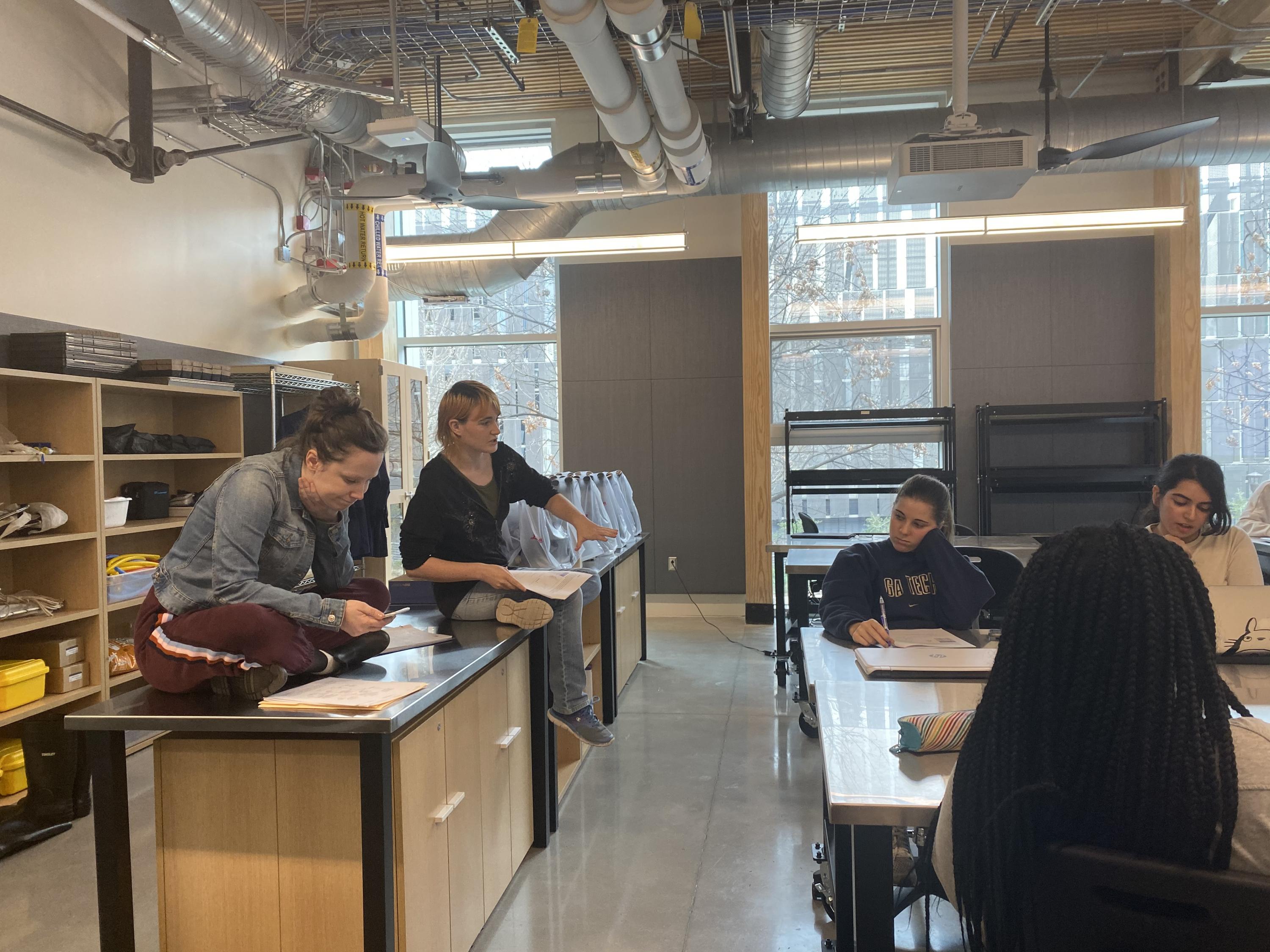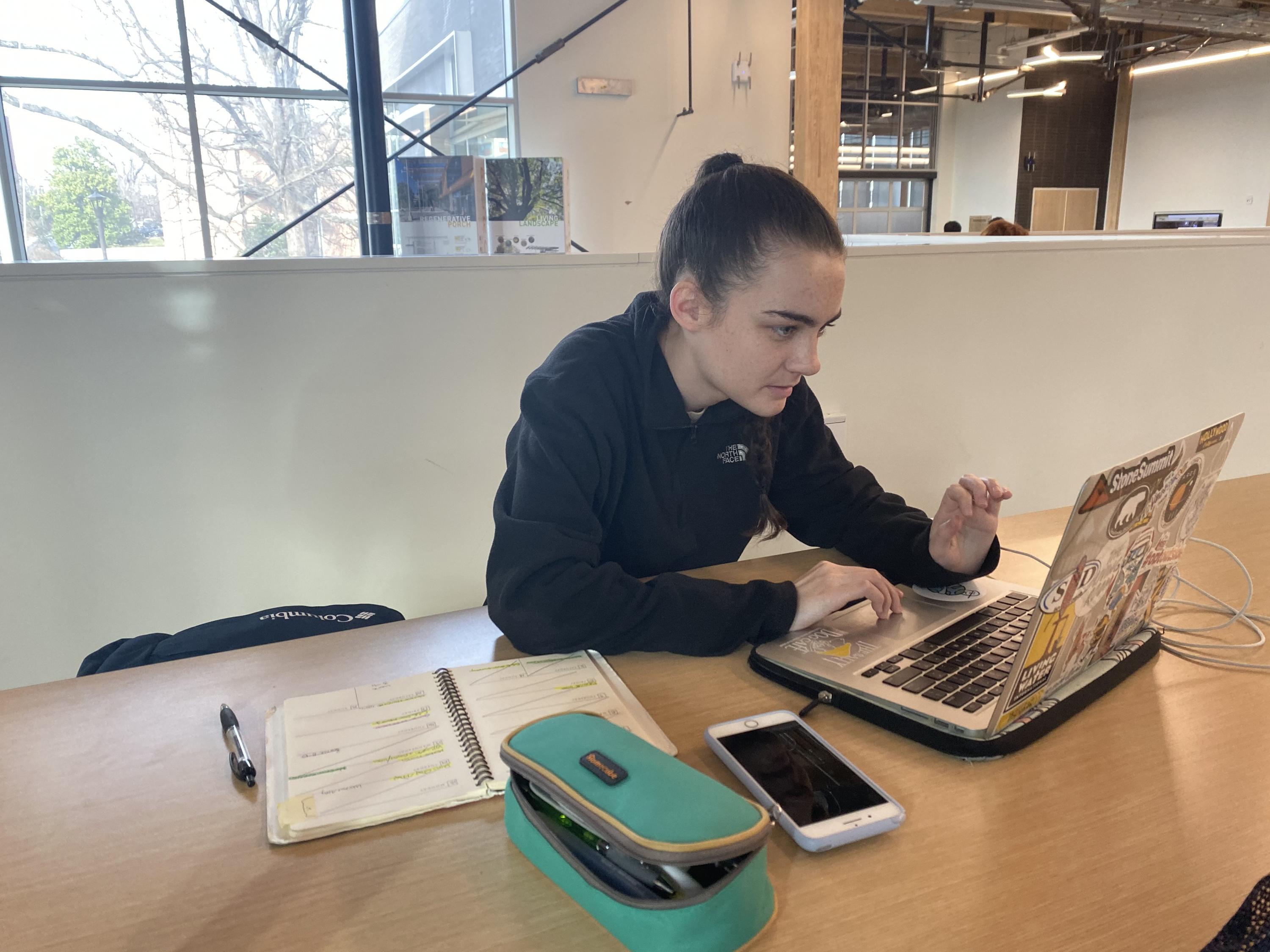On January 6, the doors of the new Kendeda Building for Sustainable Design – billed as the most environmentally advanced building for research and education in the Southeast -- opened for the Spring 2020 semester. Judging from early reactions, Kendeda is providing a thought-provoking space for students.
For biology major Ollie Skinn, who is enrolled in an ecology lab that meets in Kendeda weekly, the unique nature of the building makes coming to class a bit more enjoyable.
“I think the sustainability aspect of the building is not directly related, but actually really interesting, to reflect on how sustainability ties into ecology,” said Skinn.
Though class had only just begun, Skinn had the right ideas about sustainability relating to ecology, as one of her teaching assistants Stephanie Bilodeau pointed out.
“This course is already being integrated with the United Nations’ Sustainability Goals, and we try to emphasize that as a big part of the curriculum,” says Bilodeau. “That’s a lot easier to do in a sustainable building where there are constant reminders about that all around.”
Because of the type of equipment in the Kendeda Building lab spaces, the rules of the ecology lab are slightly different. For example, students are no longer required to wear lab coats. In previous lab spaces, established lab procedures for that space required students to stick to higher levels of protection.
“We are not working with a lot of dangerous chemicals, so we don’t need the fume hood and some of the other things that were in the lab in the Clough Undergraduate Learning Commons,” Bilodeau says.
It’s not just science labs that benefit from having classes in the Kendeda Building; classes in civil and environmental engineering, architecture, and English use the space in Kendeda to reflect on sustainability and innovation.
“Generally, most of the classes that are planned in here, but not all, will get to have a little bit of the flavor of what it’s like to be in a sustainable space,” said Dr. Emily Weigel, academic professional in the School of Biological Sciences and a co-instructor for a special Kendeda-related project. “That means making slightly different decisions about what we use in terms of technology, what kind of waste we may generate, what kinds of things we require out of the students, as well as thinking about sustainability from a social construct.”
Weigel hopes that the Kendeda Building will encourage similar future developments, but is wary of being too optimistic.
“Buildings like this haven’t existed in the Southeast and so this is the first crack at it,” she says. “As far as other types of buildings like this, there’s a lot of intentionality that went into the materials and some other things that hasn’t happened in other spaces. So it will probably be a long time before anything happens like this again unless it’s a brand new build.”
Students and faculty hope that Kendeda will set a strong example for motivating similar development projects.
“I think that how this building works out, and our ability to hold classes in here and have students voluntarily come and study in here, is going to play a big role in how much people want to replicate this project elsewhere,” says Bilodeau.
Student chatter and occasional laughter are evidence that a lot of people, such as environmental engineering student Sammie Brewer, enjoy spending time in Kendeda.
“I like studying in here mostly because I feel like not that many people have come to this building yet,” says Brewer. “I like the atmosphere in here. It’s nice how it automatically works, like the windows close automatically when it got too bright in here because it’s too much heat.”
Students, faculty, and alumni wait to see if the Kendeda experiment will be copied elsewhere. For now, they are enjoying Kendeda as an example of sustainable development combined with eye-catching architecture.
For More Information Contact
Grace Pietkiewicz
Communications Assistant
College of Sciences
katiegracepz@gatech.edu




